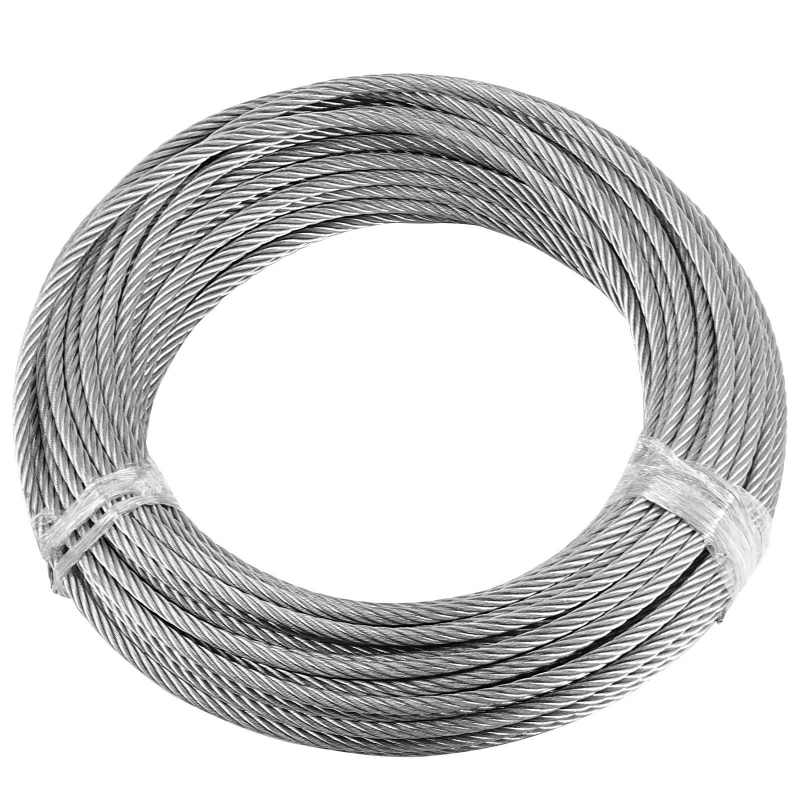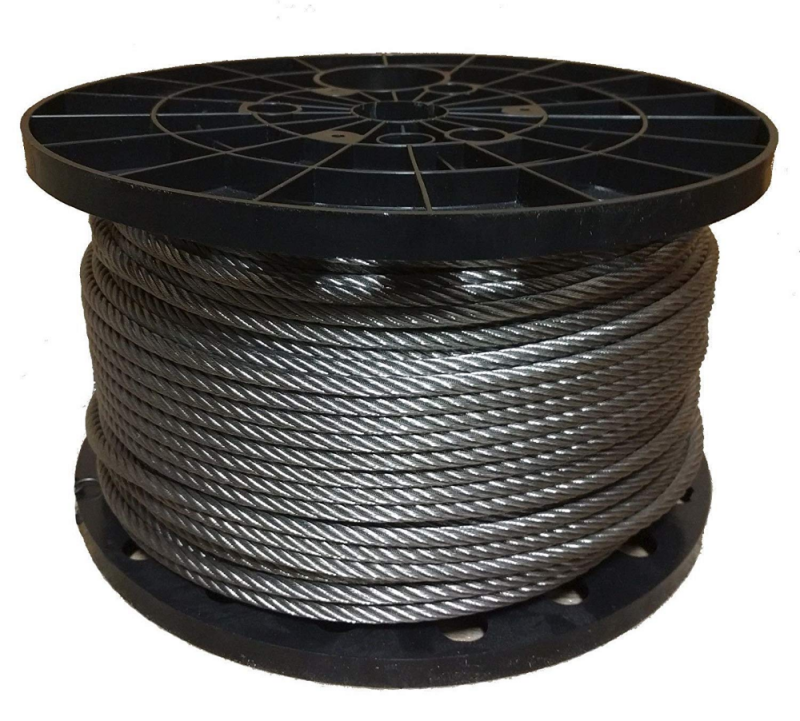When it comes to sourcing stainless steel cables, the choice of supplier can significantly impact the quality and performance of your projects. Stainless steel cables are widely used in various applications, from construction to marine environments, due to their strength, durability, and resistance to corrosion. However, not all suppliers are created equal. This article will guide you through the essential factors to consider when selecting a supplier of stainless steel cables, ensuring you make an informed decision that meets your specific needs.
Understanding Stainless Steel Cables
Before diving into the selection criteria, it's crucial to understand what stainless steel cables are and their applications. Stainless steel cables are made from stainless steel wire, which is known for its excellent tensile strength and resistance to rust and corrosion. These cables are commonly used in various sectors, including:
- Construction: For structural support and safety applications, stainless steel cables are often used in tensioning systems, suspension bridges, and as part of safety railings. Their ability to withstand heavy loads makes them ideal for these applications.
- Marine: In rigging and mooring due to their resistance to saltwater, stainless steel cables are essential in the maritime industry. They are used in boat rigging, anchor lines, and other applications where exposure to harsh marine environments is a concern.
- Architectural: For aesthetic purposes in railings and facades, stainless steel cables provide both functionality and visual appeal. They are often used in modern architectural designs, offering a sleek look while ensuring safety and stability.
- Industrial: In various machinery and equipment, stainless steel cables are utilized for lifting, pulling, and securing loads. Their durability and strength make them suitable for demanding industrial environments.
Given their diverse applications, the quality of stainless steel cables can vary significantly based on the manufacturing process and the supplier's standards. Understanding these applications helps in identifying the specific requirements for your project.

Key Factors to Consider When Choosing a Supplier
1. Quality of Materials
The first and foremost factor to consider is the quality of the stainless steel used in the cables. High-quality stainless steel, such as 316 or 304 grades, offers superior corrosion resistance and strength. Grade 304 is commonly used for general applications, while grade 316 is preferred for marine environments due to its enhanced resistance to corrosion. Ensure that the supplier provides detailed specifications about the materials used and adheres to international standards such as ASTM, ISO, or DIN. This guarantees that the cables will perform reliably under the conditions they will face.
2. Manufacturing Standards
A reputable supplier should follow strict manufacturing standards. Look for suppliers that have certifications indicating compliance with industry standards. This ensures that the cables are produced under controlled conditions, minimizing defects and ensuring reliability. Suppliers that adhere to quality management systems, such as ISO 9001, demonstrate a commitment to maintaining high standards throughout their manufacturing processes. This can significantly reduce the risk of receiving subpar products.
3. Product Range
Different projects may require different types of stainless steel cables. A good supplier should offer a wide range of products, including various diameters, constructions (such as 7x19 or 1x19), and finishes. This variety allows you to choose the right cable for your specific application. For instance, a 7x19 construction provides flexibility and is ideal for applications requiring bending, while a 1x19 construction offers higher strength for static applications. Having access to a diverse product range ensures that you can find the perfect match for your project needs.
4. Customization Options
In many cases, standard cables may not meet your project requirements. A supplier that offers customization options, such as specific lengths, coatings, or additional features, can be invaluable. This flexibility can help you achieve the desired performance and aesthetic for your project. Customization can include options like different surface finishes (e.g., polished or brushed), protective coatings to enhance corrosion resistance, or specific packaging requirements for ease of handling. Working with a supplier that understands your unique needs can lead to better project outcomes.
5. Testing and Certification
Ask potential suppliers about their testing procedures. Reliable suppliers will conduct rigorous testing on their products to ensure they meet safety and performance standards. Look for suppliers that provide certification documents, which can serve as proof of quality and compliance. Testing may include tensile strength tests, fatigue tests, and corrosion resistance assessments. Understanding the testing protocols a supplier follows can give you confidence in the durability and reliability of the cables you purchase.
6. Reputation and Experience
The reputation of a supplier can provide insights into their reliability and quality. Research the supplier's history, customer reviews, and case studies. A supplier with a long-standing presence in the industry is likely to have established a reputation for quality and service. Engaging with industry forums or seeking recommendations from peers can also provide valuable insights into a supplier's performance. A strong reputation often correlates with consistent product quality and customer satisfaction.
7. Customer Service and Support
Good customer service is essential when dealing with suppliers. You may have questions or need assistance with your order, so choose a supplier known for responsive and helpful customer support. This can make a significant difference, especially in urgent situations. A supplier that offers dedicated support, including technical assistance and prompt responses to inquiries, can enhance your overall experience and ensure that any issues are resolved quickly.
8. Pricing and Value
While price is an important factor, it should not be the sole consideration. Compare prices among different suppliers, but also evaluate the value you receive for that price. Sometimes, paying a little more for higher quality or better service can save you money in the long run. Consider the total cost of ownership, which includes not only the initial purchase price but also factors like durability, maintenance, and potential replacement costs. A supplier that offers a balance of quality and competitive pricing is often the best choice.
9. Delivery and Logistics
Consider the supplier's ability to deliver products on time. Delays in receiving materials can impact your project timelines. A reliable supplier should have efficient logistics and a proven track record of timely deliveries. Inquire about their shipping options, lead times, and any guarantees they offer regarding delivery schedules. A supplier that can consistently meet deadlines will help you maintain your project schedule and avoid costly delays.
10. Sustainability Practices
In today's market, sustainability is becoming increasingly important. Look for suppliers that prioritize environmentally friendly practices in their manufacturing processes. This not only benefits the environment but can also enhance your project's sustainability profile. Suppliers that utilize recycled materials, implement energy-efficient manufacturing processes, and adhere to environmental regulations demonstrate a commitment to sustainability. Partnering with such suppliers can align your projects with broader environmental goals.

Conclusion
Choosing the right supplier of stainless steel cables is crucial for the success of your projects. By considering factors such as material quality, manufacturing standards, product range, and customer service, you can make an informed decision that meets your needs. Remember, investing time in selecting a reputable supplier will pay off in the long run through enhanced performance and reliability of your stainless steel cables. A well-chosen supplier not only provides quality products but also becomes a valuable partner in your project's success.
Frequently Asked Questions
1. What is the difference between 304 and 316 stainless steel cables?
304 stainless steel is more affordable and offers good corrosion resistance, making it suitable for many applications. In contrast, 316 stainless steel contains molybdenum, which provides superior corrosion resistance, especially in marine environments. This makes 316 the preferred choice for applications exposed to harsh conditions, such as saltwater.
2. How can I ensure the quality of stainless steel cables?
Request certification documents from your supplier that verify the materials and manufacturing processes meet industry standards. Additionally, inquire about their testing procedures. A reputable supplier will be transparent about their quality assurance processes and provide documentation to support their claims.
3. Can stainless steel cables be customized?
Yes, many suppliers offer customization options, including specific lengths, diameters, and finishes to meet your project requirements. Customization can enhance the performance and aesthetic appeal of the cables, ensuring they fit seamlessly into your design.
4. What applications are best suited for stainless steel cables?
Stainless steel cables are ideal for construction, marine rigging, architectural designs, and various industrial applications due to their strength and corrosion resistance. Their versatility makes them suitable for both functional and decorative uses.
5. How important is supplier reputation?
A supplier's reputation is crucial as it reflects their reliability and quality. Research customer reviews and case studies to gauge their performance and service. A strong reputation often correlates with consistent product quality and customer satisfaction.





